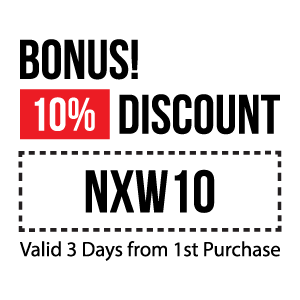
No products
 We ship to United States
We ship to United States

16 People are currently looking at this page
W-OCT
New product
ENGINE OIL CATCH TANK
An oil catch can is used in turbo applications, or high-performance race applications where excessive blow-by (leakage past the piston rings) of air and fuel vapor occurs. This creates a positive pressure in the crankcase.
Engine manufactures have placed a valve on the engine block which releases this pressure. This valve is known as a PCV (Positive Crankcase Ventilation) valve. During engine operation, blow-by gases, as well as oil mist from the rotating components of the engine, pass through the PCV valve and are routed back into the intake for the engine to burn off. However, some of the oil mist and other products settle along the engine intake and over time form a “gunk.” The oil catch can collects the oil mist and condenses the fuel vapors while allowing “cleaner” gases to be passed back into the intake.
In Stock
By buying this product you can collect up to 299 loyalty points. Your cart will total 299 points that can be converted into a voucher of USD $1.
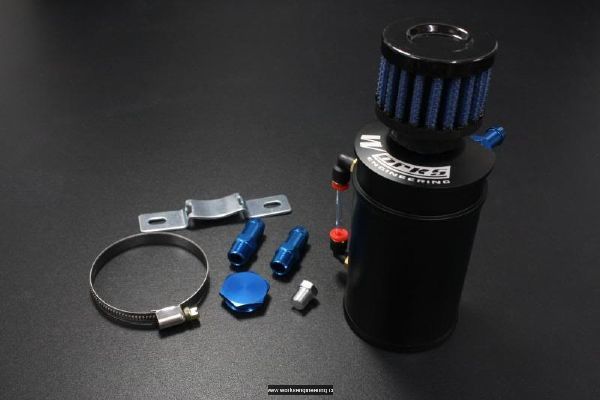

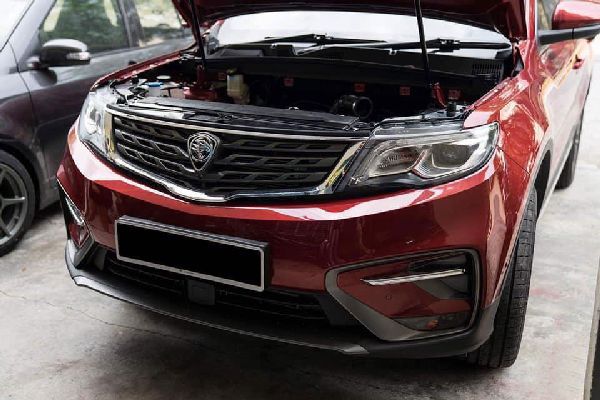

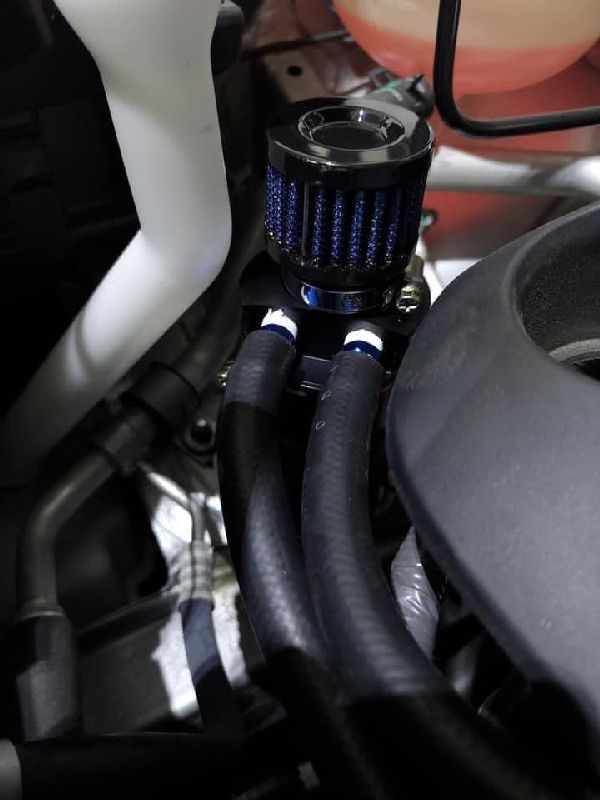
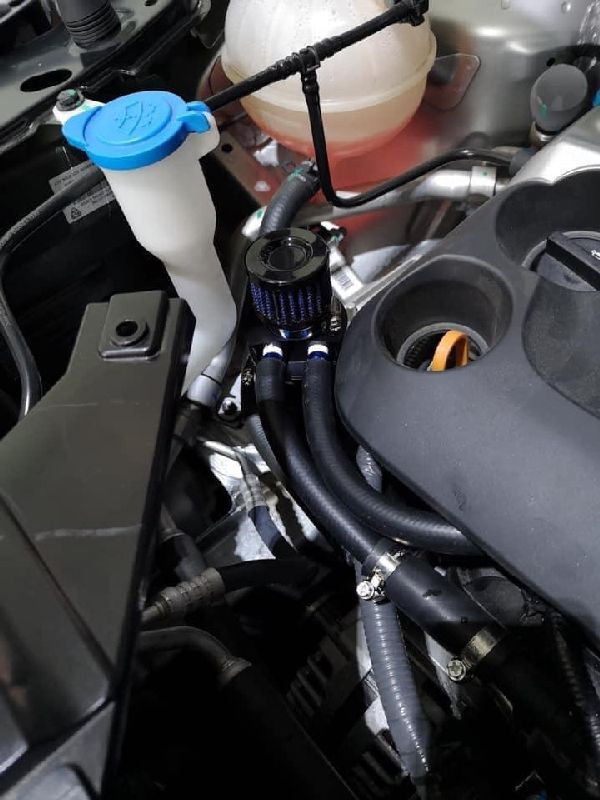
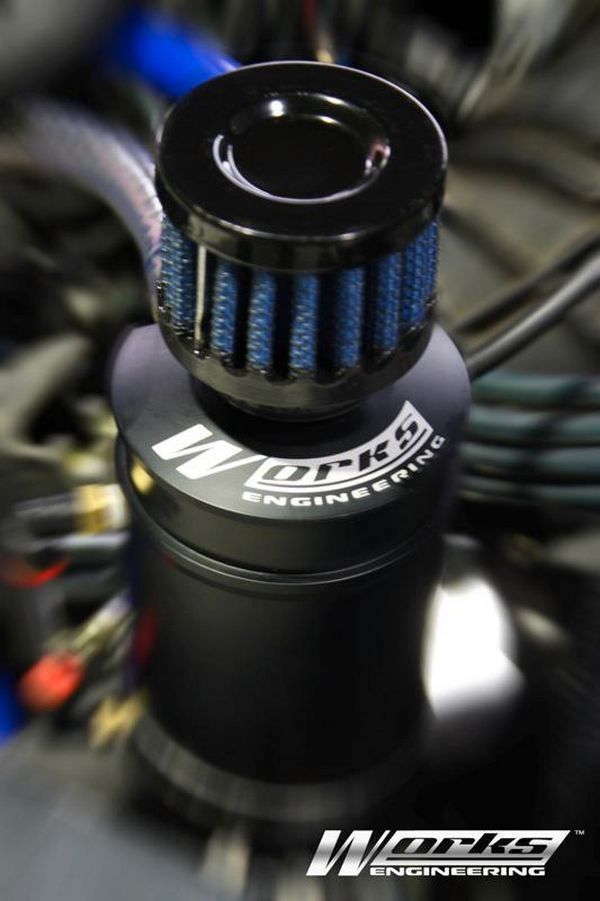
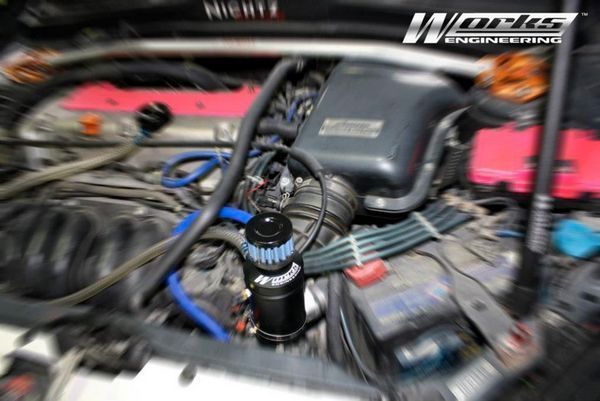

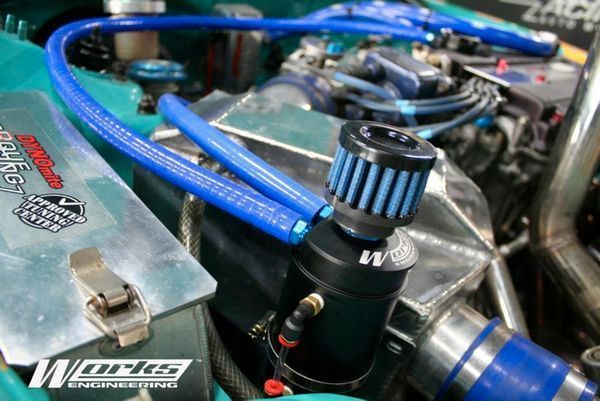




WORKS ENGINEERING USA 9mm Racing Oil Catch Tank with Mini Filter (Small) [W-OCT]
ENGINE OIL CATCH TANK
An oil catch can is used in turbo applications, or high-performance race applications where excessive blow-by (leakage past the piston rings) of air and fuel vapor occurs. This creates a positive pressure in the crankcase.
Engine manufactures have placed a valve on the engine block which releases this pressure. This valve is known as a PCV (Positive Crankcase Ventilation) valve. During engine operation, blow-by gases, as well as oil mist from the rotating components of the engine, pass through the PCV valve and are routed back into the intake for the engine to burn off. However, some of the oil mist and other products settle along the engine intake and over time form a “gunk.” The oil catch can collects the oil mist and condenses the fuel vapors while allowing “cleaner” gases to be passed back into the intake.
FEATUES:
NO registration required!
Please leave your question below:.